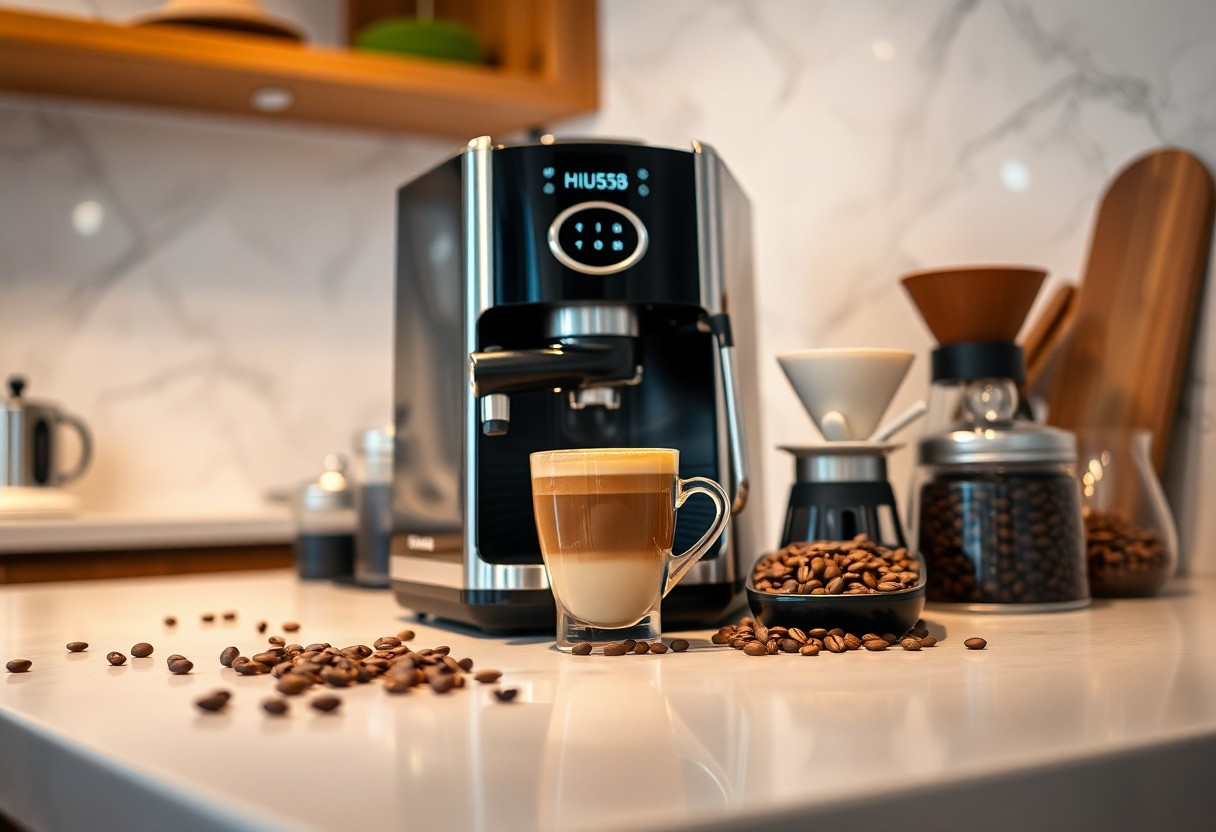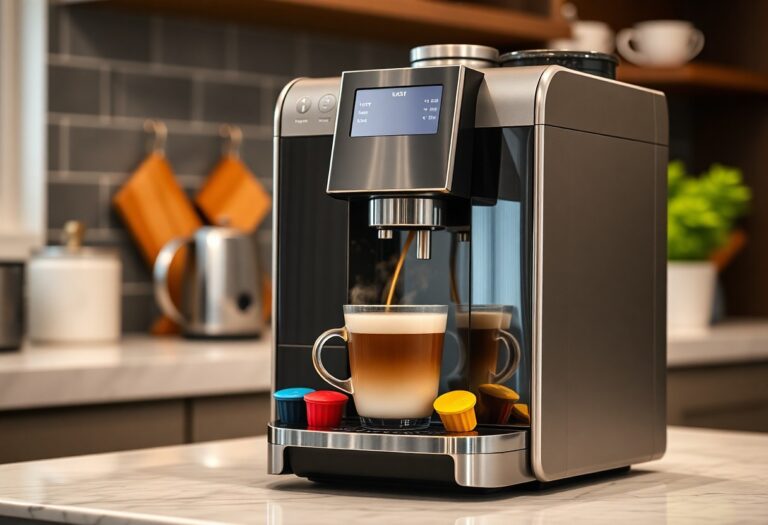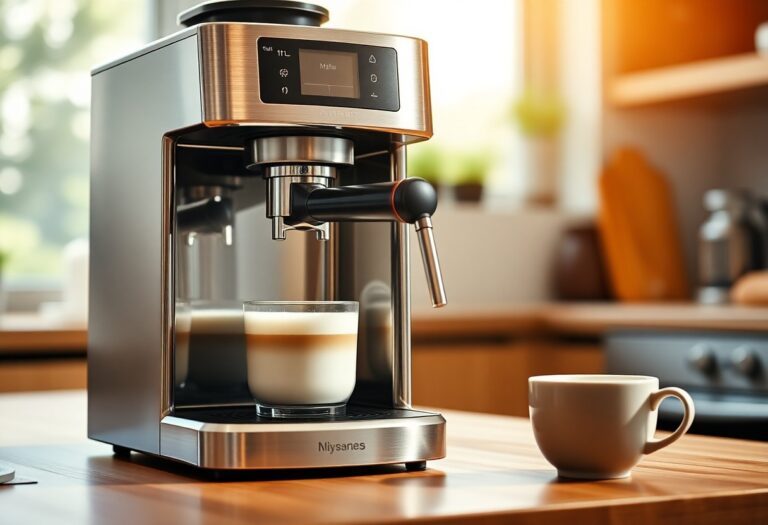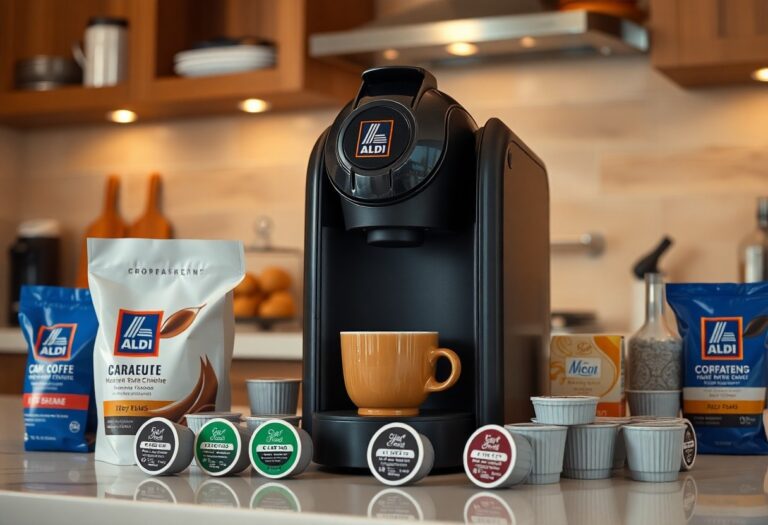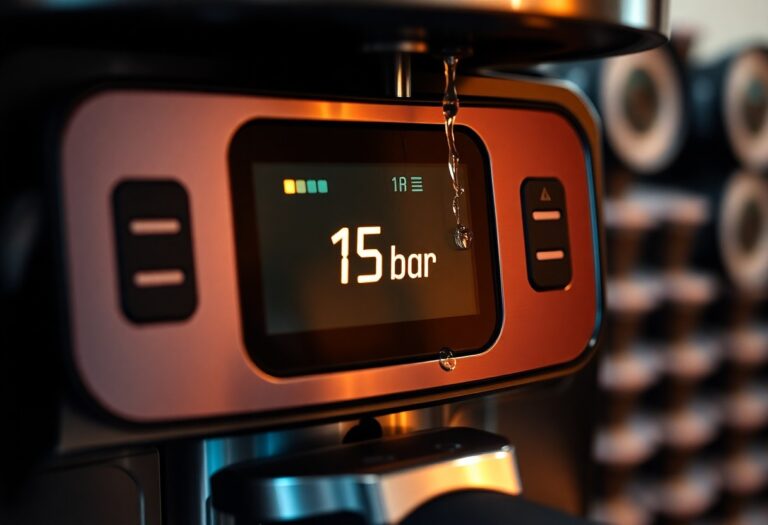What is the Best Coffee Machine – Ultimate Guide
Over the years, you may have faced the challenging decision of choosing the right coffee machine for your needs. With so many options available, it’s easy to feel overwhelmed. This ultimate guide will help you navigate through the complexities of coffee machines, ensuring you make an informed choice that suits your lifestyle and preferences. You’ll discover crucial factors to consider, explore top models, and learn about the benefits each type offers, enabling you to brew the perfect cup of coffee every single time.
Key Takeaways:
- Identify your coffee preferences and needs to select the best machine—consider factors such as brewing style, capacity, and features.
- Understand the different types of coffee machines available, including drip coffee makers, espresso machines, single-serve brewers, and French presses.
- Look for key features that enhance usability, such as programmable settings, built-in grinders, and ease of cleaning.
- Evaluate the importance of price versus quality; higher-priced models may offer better durability and advanced features.
- Read customer reviews and expert comparisons to gain insights on performance and reliability of various coffee machine brands and models.
Decoding Coffee Machine Terminology
Understanding coffee machine lingo is vital as it allows you to navigate the buying process with confidence. Terms like espresso, brew time, and grinding mechanisms might seem daunting at first, but they are important to discerning between different brewing methods and machine capabilities. Familiarizing yourself with these terms can empower you to make informed choices that align perfectly with your coffee preferences and lifestyle.
Essential Coffee Machine Components
Each coffee machine comes with a unique set of components that shape its function and performance. The most vital parts include the water reservoir, which stores the water; the brew basket, where coffee grounds are placed; and the heating element, responsible for achieving your desired brew temperature. Understanding these components can help you appreciate what makes a coffee machine effective and enjoyable.
Key Features that Impact Performance
Several key features can significantly affect a coffee machine’s functionality and your overall experience. These include the brew strength settings, which allow you to customize your coffee intensity; the grinding system, determining freshness; and the temperature control, ensuring your brew is just right. Knowing these features can lead you to a coffee machine that perfectly suits your needs.
- Brew strength settings: Customize coffee intensity.
- Grinding system: Ensures maximum freshness.
- Temperature control: Affects flavor extraction.
- Water filtration: Improves water quality for brewing.
- Automatic shut-off: Enhances safety and energy efficiency.
- Programmable settings: Allows convenience and flexibility.
- Size/Capacity: Fits your kitchen space and coffee needs.
Each feature plays a vital role in how your coffee tastes and how easy your machine is to operate. A user-friendly interface allows for effortless brewing, while a robust grinder can elevate your coffee experience by locking in those rich flavors. Knowing which features you prioritize can help streamline your decision-making process in selecting the perfect coffee machine for your home.
- Ease of cleaning: Reduces maintenance hassle.
- Material quality: Affects durability and longevity.
- Brewing time: Influences your morning routine.
- Temperature stability: Ensures consistent flavor.
- Accessibility: Affects ergonomics and user experience.
- Versatility: Allows for various brewing methods.
These features directly correlate with how well a coffee machine performs day after day. A robust design and material quality ensure longevity, while features like temperature stability can greatly enhance the flavor profile of your brew. Knowing how these key aspects fit into your coffee rituals can guide you toward finding a truly remarkable coffee machine.

The Versatility Comparison: Capsule vs. Manual Machines
The choice between capsule and manual coffee machines reflects your brewing preference and lifestyle. While capsule machines offer convenience and consistency, manual machines provide a deeper connection to the art of brewing. Your decision hinges on whether you value quick results or savor the brewing process itself. For a detailed look at top-performing coffee makers, check out The 7 Best Coffee Makers of 2025 | Reviews by Wirecutter.
Performance Breakdown
| Capsule Machines | Manual Machines |
| Fast and easy operation | Allows for precision and customization |
| Less cleaning involved | Requires more effort and maintenance |
| Limited flavor profiles | Endless flavor and brewing possibilities |
| Higher long-term cost | Cost-effective in the long run |
Advantages of Capsule Coffee Machines
Capsule coffee machines stand out for their speed and ease of use—ideal for anyone with a busy lifestyle. With just the push of a button, you can enjoy a fresh cup without the hassle of grinding beans or measuring. They come equipped with various flavors and options, making it simple to switch things up without investing in different beans.
The Art of Brewing with Manual Machines
Manual coffee machines bring a unique experience and control over your brewing process, allowing you to experiment with grind size, water temperature, and brew time. This hands-on approach not only enhances your coffee knowledge but also fosters a deeper appreciation for every cup crafted. It’s not just about the drink; it’s an immersive ritual that completes your morning routine.
With manual brewing, you connect with each step—grinding beans to a specific coarseness, meticulously pouring the right amount of water, and timing the extraction perfectly. This level of involvement allows you to tailor every cup to your taste preferences, leading to a truly personalized coffee experience. For coffee aficionados, the satisfaction derived from mastering these techniques can be unrivaled, transforming your daily coffee routine into an art form.
The Barista’s Toolkit: Understanding Brewing Methods
Unlocking the unique qualities of your coffee hinges on mastering various brewing methods. Each technique brings out different flavors and aromas, allowing you to tailor each cup to your taste preferences. With every method informed by tradition and innovation, your barista’s toolkit expands, equipping you with necessary skills to elevate your coffee experience. Understanding how each technique interacts with your chosen coffee beans can be the key to crafting the perfect brew that delivers the ideal balance of taste and strength.
Espresso vs. Drip: A Deep Dive into Techniques
Espresso and drip coffee represent two core approaches to brewing, shaped by distinct techniques. Espresso utilizes high pressure and finely ground beans to extract a rich, concentrated shot in under 30 seconds, often yielding a creamy body and intense flavor. In contrast, drip brewing relies on gravity to pass hot water through coarsely ground coffee, producing a milder flavor profile that typically takes several minutes to brew. Understanding these differences empowers you to choose the method that aligns with your taste preferences and coffee enjoyment.
French Press, Pour Over, and Cold Brew: Exploring Alternatives
French press, pour-over, and cold brew methods offer exciting alternatives to traditional espresso and drip coffee, each with its unique brewing processes and flavor outcomes. The French press immerses coarsely ground coffee in hot water for several minutes before pressing down a metal filter, allowing for a full-bodied and robust brew. Pour-over relies on a slow, controlled pour as hot water cascades over coffee grounds, accentuating flavor clarity and complexity. Cold brew, on the other hand, steeps coarsely ground coffee in cold water for an extended period, resulting in a mellow, low-acidity cup perfect for hot summer days.
Exploring these alternative brewing methods not only invigorates your coffee routine but also broadens your appreciation for the diversity of flavor profiles available. Using the French press, the extraction allows oils and sediments to remain in the cup, creating a velvety texture and bold taste. The pour-over method allows precision, often highlighting nuanced flavor notes due to its meticulous brewing control. Cold brew, often favored for its smoothness, can reduce bitterness and acidity, catering to those who prefer a sweeter cup. Each method encourages you to experiment, discovering your personal favorites while enhancing your skills in the art of brewing.
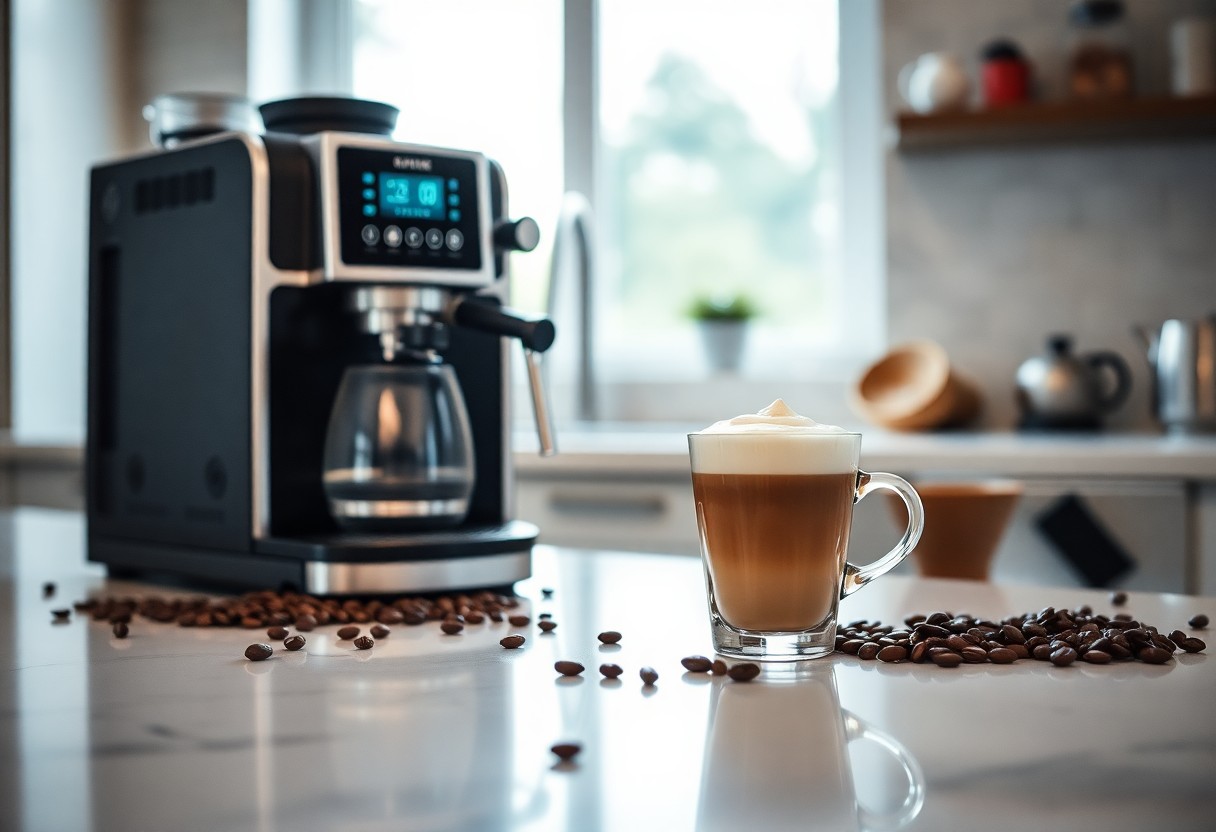
The Price-to-Performance Equation in Coffee Machines
Finding the perfect coffee machine involves balancing cost and quality. The performance you gain from a machine can significantly affect your overall coffee experience. While cheaper models may seem enticing, their ability to produce professional-quality coffee often falls short. Investing in a machine that fits your budget but also offers superior brewing capabilities can enhance your daily ritual and ultimately save you money on frequent café visits.
How Budget Options Impact Flavor and Quality
Budget coffee machines typically compromise on materials and technology, which can negatively impact the flavor and quality of your brew. Lower-priced models often use inferior heating elements and plastic components, leading to uneven extraction and a lackluster cup of coffee. You’ll likely notice that these machines struggle with temperature consistency, which is key to unlocking the full flavor profile of your coffee beans.
Premium Machines: Are They Worth the Investment?
Premium coffee machines often come with advanced features such as precise temperature control, high-quality grinders, and durable construction. These aspects largely contribute to a superior brewing experience and can elevate the flavor of your coffee. For dedicated coffee enthusiasts, investing in a premium machine may be justified, as it allows for customization and the potential for café-level coffee at home.
While premium machines carry a hefty price tag, they often deliver unparalleled performance that justifies the investment. For instance, machines from brands like Breville and DeLonghi include features such as programmable settings and pressure gauges, which enable you to fine-tune your brew to your taste preferences. In many cases, the longevity and reliability of these products mean you won’t be replacing them frequently, ultimately saving you money over time. Consider your coffee habits: if you’re brewing daily and demand consistency and quality, a premium machine can transform your experience and is often worth every penny.
Maintenance and Longevity: Your Coffee Machine’s Best Friend
Proper maintenance is important to extend the lifespan of your coffee machine and enhance its performance. Regularly cleaning, descaling, and ensuring that all parts are functioning optimally can prevent common issues and guarantee a consistently satisfying cup of coffee. Embracing a proactive maintenance routine will not only improve your coffee experience but also save you money in the long run by reducing the need for repairs or replacements.
Routine Care Tips for Peak Performance
To keep your coffee machine performing at its best, establish a routine care regimen. Incorporate these simple steps:
- Clean the machine daily to remove oil and residue.
- Descale every few months depending on your water hardness.
- Replace water filters as needed to maintain brew quality.
- Inspect seals and gaskets for wear and tear.
- Run hot water cycles periodically to flush out any buildup.
This will significantly enhance your machine’s durability and brewing consistency.
Signs Your Coffee Machine Needs an Upgrade
Observing specific warning signs can help determine when it’s time for an upgrade rather than investing in repairs. If your coffee machine consistently brews sluggishly, produces uneven flavors, or exhibits frequent overheating, these could indicate that wear and tear has compromised its functionality. With technology evolving rapidly, older models may lack features or energy efficiency standards that modern machines offer, making them less effective over time.
When your coffee machine starts showing these signs, it often means it can’t deliver the experience you deserve. Over time, components like water pumps and heating elements may degrade, leading to inconsistent brewing temperature and extraction. If you’ve noticed any unusual noises or persistent issues despite regular maintenance, these can signify deeper problems. Ultimately, investing in a more advanced machine could enhance your daily coffee ritual significantly, giving you not just better coffee but also greater reliability and energy efficiency.
Conclusion
To wrap up, understanding what the best coffee machine for your needs entails will elevate your coffee experience significantly. Whether you prefer a simple drip machine or a sophisticated espresso maker, consider factors like brewing method, capacity, and features to find your perfect match. To probe deeper into options and make an informed choice, check out The best coffee maker 2025: espresso and filter made easy. With the right coffee machine, you can enjoy exceptional brews tailored to your taste.
Q: What factors should I consider when choosing the best coffee machine?
A: When identifying the best coffee machine, consider factors like brewing method (drip, espresso, French press, etc.), capacity (single serve vs. multi-cup), user-friendliness, cleanliness, and additional features such as built-in grinders, milk frothers, and programmable settings. Also, evaluate the machine’s compatibility with different types of coffee beans and grounds.
Q: What are the different types of coffee machines available?
A: There are several types of coffee machines, including drip coffee makers, espresso machines, single-serve pod machines, French presses, pour-over setups, and percolators. Each type has its unique brewing method, flavor profile, and ideal usage scenario, catering to various tastes and preferences.
Q: How does the price of a coffee machine affect its quality?
A: Generally, higher-priced coffee machines may offer better build quality, advanced features, and more consistent brewing performance. However, not all expensive machines guarantee superior coffee. It’s important to read reviews and consider what features matter most to you. Some budget machines can deliver excellent results depending on your brewing style.
Q: How do I maintain and clean my coffee machine?
A: Maintenance and cleaning methods vary by machine type. For drip machines, regularly clean the carafe and brew basket, and perform a vinegar cycle to descale. Espresso machines require more detailed cleaning—backflushing and cleaning the group head is imperative. Always refer to the manufacturer’s instructions for specific maintenance needs to extend the lifespan of your coffee maker.
Q: What is the best brewing temperature for coffee?
A: The optimal brewing temperature for coffee is typically between 195°F to 205°F (90°C to 96°C). This range helps extract the best flavors from the coffee grounds without burning them. Most modern coffee machines are designed to brew within this temperature range, ensuring a balanced and flavorful coffee experience.

